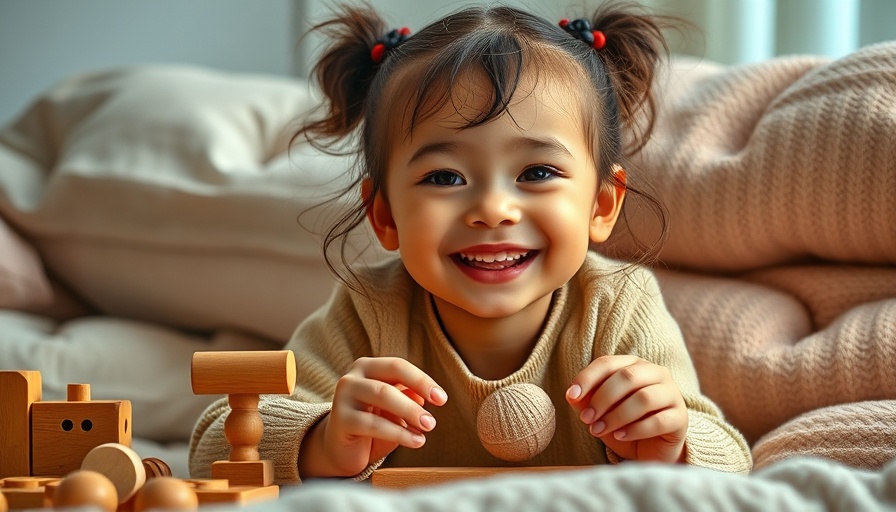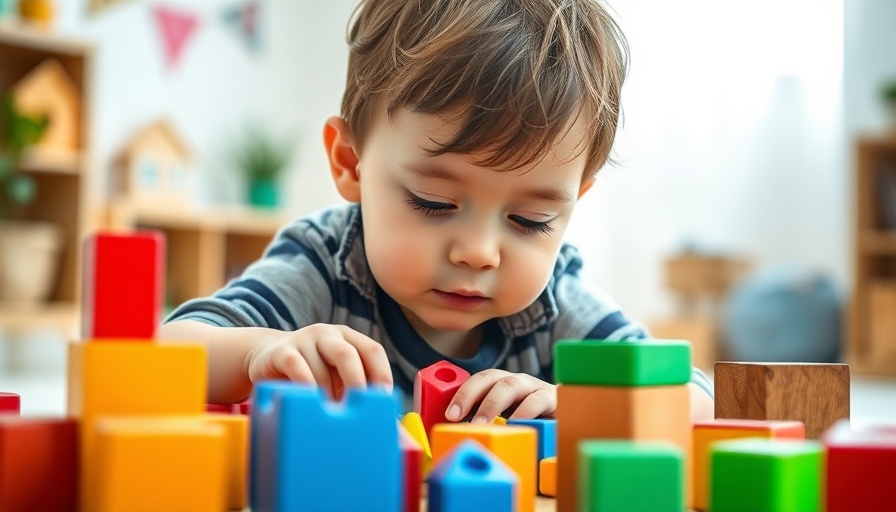
Understanding Kindness: The Foundation of Compassion
As parents and educators, instilling kindness in children is a fundamental part of nurturing well-rounded, compassionate individuals. The journey begins early and can be significantly enhanced through play—a dynamic vehicle for social learning that fosters cooperation and empathy.
The Role of Play in Developing Kindness
Children naturally explore their surroundings and the feelings of others as they engage in various forms of play. Initially, toddlers may partake in parallel play, where they enjoy activities alongside peers without direct interaction. This normal developmental stage paves the way for deeper social connections as they grow, transitioning into cooperative play where sharing and empathy become essential components.
Engaging them with toys that require collaboration, such as building blocks or puzzles, lays the groundwork for essential social skills. As they navigate these activities, children learn to work together towards a common goal, which is vital for understanding and appreciating diverse perspectives.
Practical Strategies to Encourage Kindness at Home
Incorporating simple practices at home can significantly bolster children's understanding of kindness. Here are a few effective methods:
- Model Kindness: Children learn best by observation. Demonstrating kindness through your actions—like assisting neighbors or acknowledging someone's efforts—provides them with a tangible example to emulate.
- Discuss Emotions: Engage your children in conversations about feelings during playtime. Pose questions like, "How do you think the toy feels when it's not chosen?" This can help them learn empathy through contemplation.
- Praise Kind Actions: Recognizing and praising acts of kindness, whether sharing toys or comforting a friend, reinforces positive behavior and encourages them to repeat those actions.
Toys That Teach Kindness: Learning Through Engagement
Selecting toys with built-in lessons can further enhance the kindness curriculum. For example, the Tea Time Wooden Play Set allows children to enter the world of social gatherings and teamwork, understanding the importance of communication and collaboration while hosting make-believe tea parties. This cooperative play experience fosters sharing and patience and teaches problem-solving in a supportive environment.
Another remarkable example is the Walk-A-Long Puppy toy. As children take on caregiving roles, they practice nurturing behaviors, thereby deepening their emotional understanding and compassion.
Beyond Toys: Unique Activities to Cultivate Kindness
While toys play a significant role, various creative activities can also encourage kindness. Here are some engaging ideas:
- Kindness Walks: Initiate kindness walks where children practice greeting and interacting positively with passersby, enhancing their social skills.
- Kindness Chains: Create a “kindness chain” by writing kind acts on paper strips, reflecting on shared experiences that promote a positive atmosphere.
- Art Projects: Encourage children to design kindness posters or cards, reinforcing affirmations of appreciation for others in their community.
Reinforcing Kindness: Lessons for Life
Teaching children to embody kindness goes beyond mere behavior; it nurtures a fundamental understanding of empathy that they will carry into their adult lives. Actions such as saying thank you, apologizing, and encouraging others reinforce valuable lessons about respect and consideration.
Incorporating practices from educational philosophies focusing on emotional learning makes it easier to discuss and live by these values. Among effective resources are stories and games designed to playfully tackle themes of inclusion and cooperation, further developing emotional intelligence and empathy.
Conclusion: The Long-Term Impact of Kindness Education
As we endeavor to raise children who are kind, compassionate, and empathetic, it is essential to create an environment that reinforces these values through play and daily interactions. By incorporating these various strategies and activities into family routines, we foster not only the skills necessary for cooperation and empathy but also a culture of kindness that will significantly impact their lives and the lives of those around them. Such a foundation will empower them as they navigate a world that often calls for greater kindness and understanding.
To learn more about activities, resources, and tips on fostering kindness in children, visit platforms that specialize in child development and education. Embrace the playful journey of nurturing kindness and witness the positive transformations in young minds.
 Add Row
Add Row  Add
Add 




 Add Row
Add Row 

 Add
Add
Write A Comment